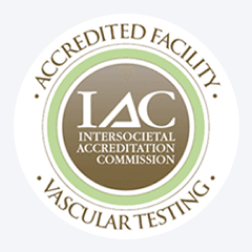Nurses are the backbone of the healthcare system, often placing patients’ needs before their own. However, the physical and mental demands of long shifts can have serious implications for your circulatory health. Between long hours on your feet, irregular meals, and high stress levels, it can be difficult to prioritize your well-being. But taking steps to protect your heart and veins is essential, not just for your own quality of life, but for your ability to continue providing exceptional care to others.
In this article, we explore practical strategies to support heart and vein health during demanding workdays. From dietary tips and exercise routines to circulation-friendly habits, these recommendations are tailored to the unique challenges nurses face. By adopting these small but impactful changes, you can maintain better vascular health and sustain your energy and resilience throughout your career.
Why Circulatory Health Matters for Nurses
Your circulatory system includes your heart, veins, arteries, and blood. It is responsible for transporting oxygen and nutrients to tissues while removing waste from your body. When circulation is compromised, your energy levels, immune function, and overall well-being can decline. More serious consequences include vein disease and heart conditions, which can impact your ability to perform your job and reduce your long-term health outcomes.
For nurses, the risks are especially high. The demands of standing for extended periods, lifting patients, walking long distances throughout hospital floors, and managing stress all contribute to poor circulation. Recognizing these risks and taking proactive steps can help you prevent serious complications.
The Impact of Long Shifts on Circulatory Health
Nurses often work 10 to 12-hour shifts, sometimes even longer. These extended hours can lead to fatigue, dehydration, and periods of both inactivity and intense physical labor. Each of these factors affects your circulatory system.
Prolonged standing without movement can cause blood to pool in your lower extremities, leading to swelling, varicose veins, and pain. On the flip side, long periods of sitting—for example, during charting or driving home after a shift, can also restrict blood flow, increasing your risk of deep vein thrombosis (DVT).
Stress, another common element in nursing, raises cortisol levels and blood pressure. Over time, chronic stress can damage blood vessels and contribute to heart disease. To stay well and perform at your best, you must be mindful of how your lifestyle impacts your circulatory system.
Heart Health Starts With Nutrition
One of the most effective ways to protect your heart is through proper nutrition. A heart-healthy diet supports vascular function, regulates blood pressure, and reduces inflammation. Even during long shifts, small changes in your diet can make a big difference.
Tips for Eating for Circulatory Health:
- Prioritize fruits and vegetables: Aim for five or more servings per day. These foods are rich in antioxidants, which help reduce inflammation and support heart function.
- Choose whole grains: Whole wheat bread, brown rice, and oats are excellent sources of fiber, which helps lower cholesterol and supports vein health.
- Limit saturated fats and processed foods: Opt for lean proteins such as chicken or fish, and avoid trans fats and heavily processed snacks.
- Watch your sodium intake: Excess salt can increase blood pressure. Instead of packaged meals, try prepping simple lunches with fresh ingredients.
- Stay hydrated: Dehydration can cause your blood to thicken, making it harder for your heart to circulate it effectively. Carry a refillable water bottle and sip throughout your shift.
Movement and Exercise for Better Circulation
Though your job may involve walking and standing, targeted exercise is still important. Regular physical activity improves circulation, strengthens the heart, and helps maintain a healthy weight.
Try to include the following in your weekly routine:
- At least 150 minutes of moderate-intensity cardio: Brisk walking, cycling, dancing, or swimming can elevate your heart rate and support overall cardiovascular health.
- Strength training two times per week: Focus on lower body exercises such as lunges and calf raises to improve circulation in your legs.
- Stretching and flexibility exercises: Incorporating yoga or gentle stretching into your routine can relieve muscle tension and improve blood flow.
Even during your shift, small movement breaks can make a difference. Calf pumps, ankle rolls, or pacing during calls can help prevent stiffness and reduce swelling.
Managing Stress to Protect Your Heart
Emotional stress contributes to high blood pressure and inflammation, both of which are risk factors for heart disease. The demanding and often unpredictable nature of nursing makes stress management a key component of circulatory health.
While heart health is often the focus, vein health is equally important for nurses. Standing for extended periods can strain your veins and lead to issues such as varicose veins and chronic venous insufficiency. Without proper circulation, your legs may feel heavy, ache, or swell by the end of your shift.
Ways to support vein health:
- Wear compression stockings: These specialized garments apply gentle pressure to the legs to improve blood flow and reduce swelling. Consider making them part of your everyday uniform.
- Elevate your legs during breaks: Lifting your legs above heart level during downtime helps prevent blood pooling and relieves pressure.
- Incorporate quick leg exercises: Calf raises and ankle circles during shift transitions or breaks can help blood circulate back toward your heart.
- Use anti-fatigue mats: If you work in one station for long periods, standing on a cushioned mat can reduce strain and promote circulation.
Know When to Seek Help
Even with healthy habits, it is important to pay attention to your body. Symptoms such as frequent leg pain, swelling, visible veins, dizziness, or shortness of breath may indicate an issue with your circulation. Early intervention can prevent more serious conditions and help you stay healthy and active in your role.
At United Vein & Vascular Centers, we offer advanced diagnostic tools and treatment options for vein and circulatory issues. Whether you are noticing the early signs of a problem or looking for ways to prevent future complications, we are here to support your long-term wellness.

Take Control of Your Circulatory Health
Nurses spend their days caring for others, often at the expense of their own well-being. But prioritizing your circulatory health is not a luxury, it is a necessity. By focusing on nutrition, movement, stress management, and vein care, you can protect yourself from preventable conditions and enjoy a long, rewarding career.
At United Vein & Vascular Centers, we understand the unique challenges healthcare professionals face. Our team is here to help you stay healthy, strong, and able to keep making a difference for your patients every day.
If you are experiencing symptoms or want guidance on protecting your vascular health, schedule a consultation with us today. Your health matters. Let us help you take care of it.
Find a Vein & Vascular Specialist Near You
With 45+ locations nationwide, expert vein and vascular care is closer than you think. Find your nearest United Vein & Vascular Center and start your journey toward improved circulation and mobility.
Frequently Asked Questions
Poor circulation in the legs is often caused by prolonged sitting or standing, vein valve dysfunction, or conditions like chronic venous insufficiency. Lifestyle factors such as lack of exercise, dehydration, and obesity can also contribute.
Wearing compression stockings, taking movement breaks, elevating your legs during rest periods, and staying hydrated can help reduce the risk of developing varicose veins from long periods of standing.
Common early symptoms of vein issues include leg heaviness, swelling, aching, visible veins, and cramping—especially after prolonged standing or at the end of the day.


